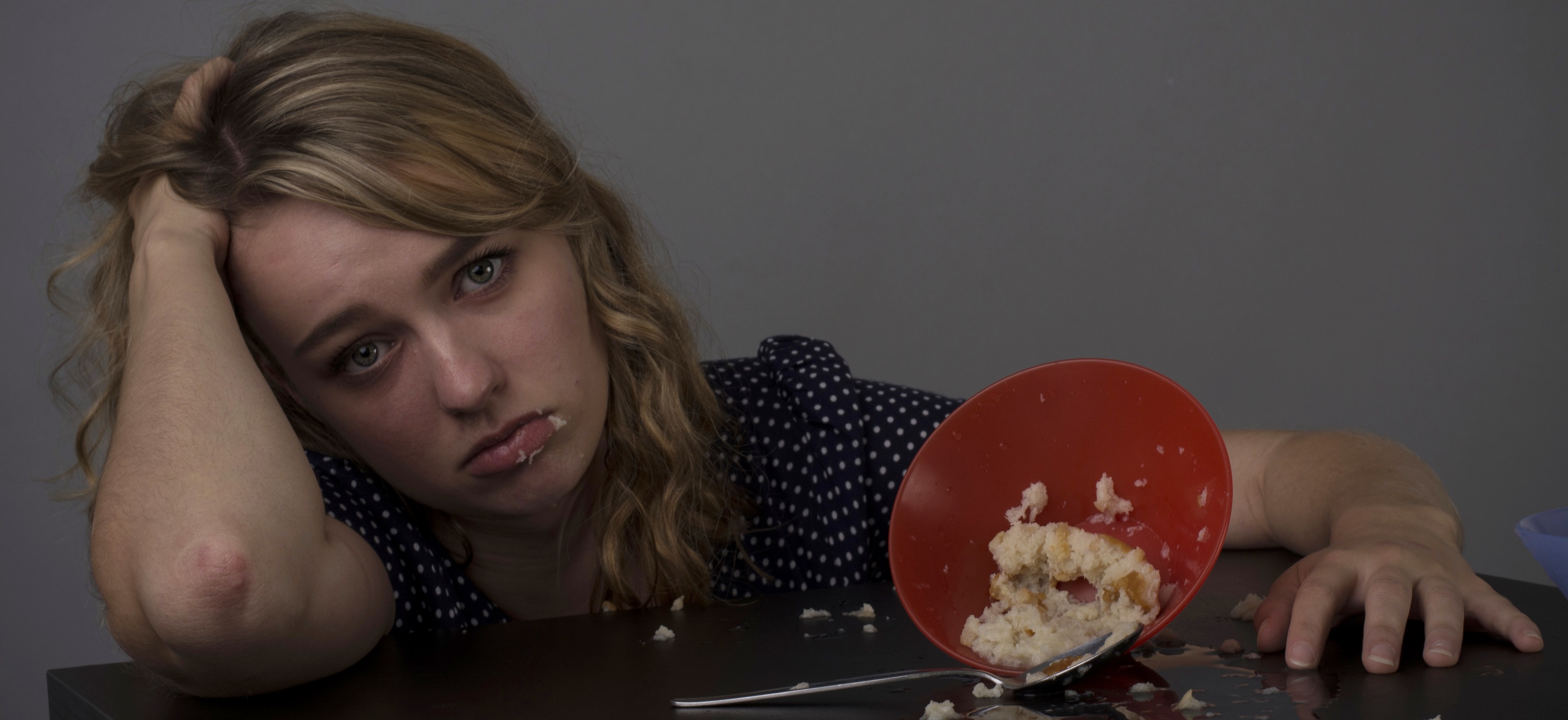Anyone likes to have an extra bite during the ‘Thanks giving’, ‘Christmas’ or any other celebrations. But, some might find themselves gorging on an abnormal amount of food every day, consuming more than 2,000 or more calories in a single meal. This type of unhealthy and excessive overeating at a short time period is known as binge-eating.
Binge-eating is one of the eating disorders in which you feed on an enormous amount of food in a comparatively short period of time. The disorder is signified by Compulsive eating in which you persistently have an uncontrollable urge to eat even after being full. You’ll eat really fast without realizing the taste or amount, and have difficulty to stop eating.

How Binge-eating is a vicious cycle?
A binge-eater usually finds food as a means of comfort and pleasure. The satisfaction that he/she gets fulfilling the urge to eat is temporary. Almost in all cases, binge-eaters feel intense shame and guilt to have gulped on a lot of food. They are distressed and embarrassed about the uncontrollable eating habit they’ve formed, and not to miss, the consequent weight gain. This only leads to more eating, as they have established food as a means of comfort. Binge-eating disorder becomes a vicious cycle; you eat to satisfy your desire, then feel immediately upset about it and return back to eating again to feel better.
How Common is Binge-Eating Disorder?
It is estimated that at least 1 out from 35 American adults are going through binge-eating disorder (BED). Women are more likely to have binge-eating disorder than men. Studies show that 3.5 % of women and 2% of men in the U.S have BED. This disorder is highly seen in high-school and college students. 10 to 15% of people who have entered dieting programs are seen to have BED; they restrict themselves from food to lose the extra weight gain, and abruptly get back to eating again.
Causes of Binge-Eating Disorder
Binge-eating disorder can be caused by a chain of factors as given below.
Biological factors
A part of brain known as hypothalamus has the responsibility to send the message to the body about hunger and appetite. If the body doesn’t get correct message about the appetite, the urge to eat can remain constant even when the stomach is full. Low levels of Serotonin (the brain chemical which determines the mood) also can cause BED.
Also, it has been seen that binge-eating disorder is more likely to occur in individuals having a family history of compulsive eating and binge-eating than those who don’t have.
Psychological Factors
Mental state can also be a cause factor for binge-eating. Almost in all cases, people overeat to deal with distress, depression, boredom, disappointment, loneliness and dissatisfaction with one’s own body. People who have difficulty in controlling and managing their impulses can start overeating, and eventually have BED.
Symptoms of Binge-Eating Disorder
The major symptoms of binge-eating disorder are
- Eating an abnormal amount of food at a relatively short period of time
- Eating really fast and vigorously
- Eating till the extent of feeling sick and uneasiness in abdomen
- Not eating through regular planned meal times
- Feeling numb while you’re eating ( getting unaware and detached from the reality)
- Immediately feeling ashamed and distressed to have eaten so much
- Eating alone to avoid embarrassment of overeating
When to visit a doctor?
If you have been experiencing the above symptoms for more than six months, then you can consult with a doctor. You need to have proper treatment if you’ve got an abnormal weight gain due to overeating.
How is Binge-Eating Disorder treated?
BED is treated through a combination of appropriate medicines and therapies.But adopting few lifestyle changes is beneficial to Stop Binge Eating.
Medicines
Medicines that are commonly used to control the symptoms of binging are anti-depressant medicines and those used for controlling attention-deficit hyperactivity disorder. However, in the case of BED, medicines will only help to control the impulses of eating, but won’t be a full treatment. Medicines should go along with therapies. Consult your doctor properly before any medications.
Cognitive- behavioral therapy (CBT)
CBT needs to go along with medicines. This therapy will help to recognize the inner feeling and thoughts within you. While you eat, you won’t be aware of what, how much and why you’re eating in an abnormal way. As you start with your counseling session with an expert therapist, you’ll be aware about the food habits yourself and how they have been occurring. The main aim is to dig into the roots of your problem and find out the triggers for your eating disorder. Your therapist will teach you unique ways to deal with the triggers, and improve your behavior.
You can also learn relaxing techniques, nutritional knowledge and healthy ways of weight loss by working together with your cognitive behavioral therapist.